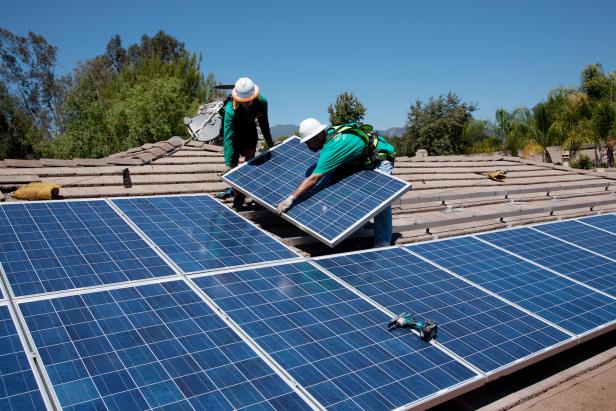 photo credit: Shutterstock
photo credit: ShutterstockThe California Supreme Court on Thursday sided with environmental groups in a case seen as pivotal for the proliferation of rooftop solar power in California.
In a unanimous vote, justices told a lower court to revisit a ruling that upheld reduced payments to solar panel owners for selling excess power back to utility companies."They basically said the lower court kind of punted on the whole substance of the [solar payments] decision," Bernadette Del Chiaro, vice president for California at the Environmental Working Group, said. "I do think they're clearly stating this needs to be reviewed."
At issue is a 2022 decision by state regulators to reduce by about 75% payments to solar panel owners for excess power. The change was allegedly intended to help make bills affordable for all customers while still encouraging the adoption of renewable energy sources.
"We don't need [to be in] an affordability crisis if we have more local generation," Roger Lin, senior attorney for the Center for Biological Diversity, said.
Utilities pay solar panel owners for their excess power under a program known as "net energy metering." In previous iterations of the program -- "NEM 1.0" and "NEM 2.0" -- utilities paid solar customers a retail rate for their extra energy, which is the same price the utilities charge other customers when they resell that energy. This was changed under the current iteration of the program -- "NEM 3.0" -- which instead gives customers the "avoided cost," which is how much utilities save by not buying that power on the wholesale market.
Customers who joined the program after mid-April 2023 receive the new rate, while customers under the prior two versions will continue to receive the old rate for the duration of their contracts, which is typically about 20 years.
Utility commissioners ruled in favor of power companies, which argued that older versions of the program created an unfair cost burden on customers. Those without rooftop solar, utilities said, have to pay more than their peers for routine maintenance to the grid.
Thursday's decision said the court of appeals "erred" by using this standard.
Whether or not the change in how solar panel owners are paid is legal will be left to the lower courts. But the decision this week could have farther-reaching implications for state utility regulators.
Advocates said the decision reinforces that the utilities' commission must ensure that its decisions fit squarely within the law.
"For too long, they really have operated in a black box behind a shroud of complexity," Del Chiaro said. "Consumers and the planet have consistently lost out as a result of that."
The fallout from the utility commission's 2022 net metering decision included an 82% drop in customers requesting connections for rooftop solar installations, and industry groups expected a loss of about 17,000 jobs during the first year of the change.
This is a developing story.

 Live Radio
Live Radio